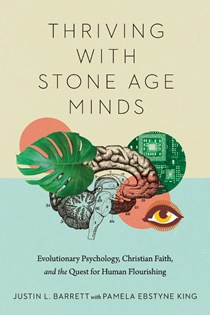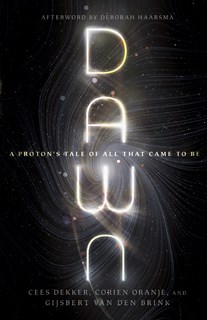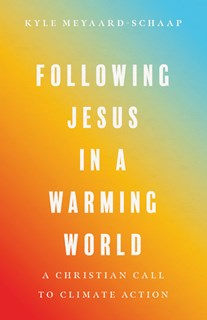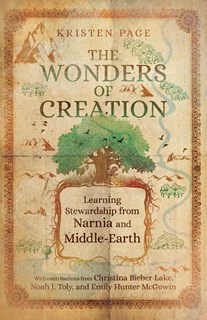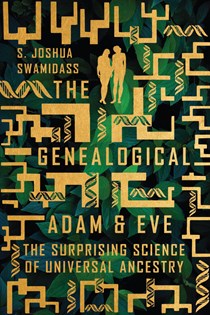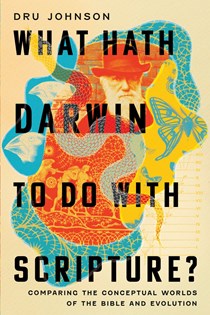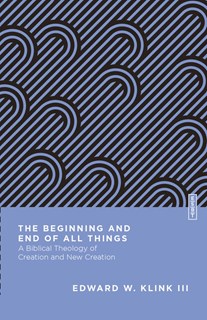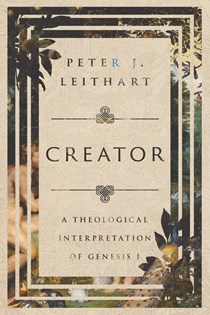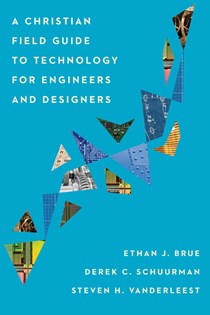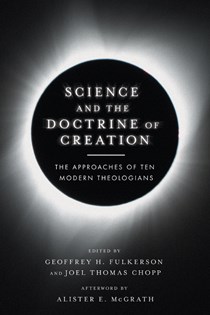Science & Faith
-
Thriving with Stone Age Minds
Evolutionary Psychology, Christian Faith, and the Quest for Human Flourishing
BioLogos Books on Science and Christianity
by Justin L. Barrett
With Pamela Ebstyne KingWhat does God's creation of humanity through the process of evolution mean for how we think about human flourishing? Combining scientific evidence with wisdom from the Bible and Christian theology, this introduction explores how the field of evolutionary psychology can be a powerful tool for understanding human nature and our distinctively human purpose.
-
Dawn
A Proton's Tale of All That Came to Be
BioLogos Books on Science and Christianity
by Cees Dekker, Corien Oranje, and Gijsbert van den Brink
Translated by Harry Cook
Afterword by Deborah HaarsmaDiscover the wonder of the cosmos as you follow the journey of one proton from the beginning of creation all the way through history to today. Combining mind-bending scientific knowledge with storytelling and insights from theology, this gripping narrative provides a fresh look at cosmology, evolutionary biology, and the good news of God.
-
Following Jesus in a Warming World
A Christian Call to Climate Action
by Kyle Meyaard-Schaap
Many young Christians are waking up to the realities of climate change but just don't know how to help. Through stories from the field, theological and scriptural exploration, and practical advice, this field guide from Christian climate activist Kyle Meyaard-Schaap helps us take meaningful action grounded in the joy of caring for creation.
-
The Wonders of Creation
Learning Stewardship from Narnia and Middle-Earth
Hansen Lectureship Series
by Kristen Page
Contributions by Christina Bieber Lake, Noah J. Toly, and Emily Hunter McGowinIn this insightful exploration of Narnia and Middle-earth, Biologist Kristen Page discovers what we these beloved fictional landscapes might teach us about our real-life landscapes and how to become better stewards of God's good creation.
-
The Genealogical Adam and Eve
The Surprising Science of Universal Ancestry
by S. Joshua Swamidass
What if the biblical creation account is true, with the origins of Adam and Eve taking place alongside evolution? Building on well-established but overlooked science, S. Joshua Swamidass explains how it's possible for Adam and Eve to be rightly identified as the ancestors of everyone, opening up new possibilities for understanding Adam and Eve consistent both with current scientific consensus and with traditional readings of Scripture.
-
What Hath Darwin to Do with Scripture?
Comparing Conceptual Worlds of the Bible and Evolution
by Dru Johnson
The book of Genesis might be the most Darwinian text of the ancient world. Can the ideas of Scripture and evolutionary science be mutually illuminating? Biblical scholar Dru Johnson calls us beyond creation-versus-evolution debates to explore the continuities and discontinuities between biblical themes and those of Darwin and modern science.
-
The Beginning and End of All Things
A Biblical Theology of Creation and New Creation
Essential Studies in Biblical Theology
by Edward W. Klink III
Series edited by Benjamin L. GladdEdward W. Klink III presents a holistic understanding of creation, one that is unfolded throughout all of Scripture and is at the core of the gospel itself. Along with offering rich insights about God and his purposes for the world, a biblical theology of creation guides how we engage nature, culture, and life as embodied beings.
-
Creator
A Theological Interpretation of Genesis 1
by Peter J. Leithart
Discussion about God's work of creation are often overwhelmed by questions such as the age of the earth and the relationship between divine creation and evolution. Without completely ignoring these issues, this rigorously grounded theological interpretation of Genesis 1 engages thinkers like Plato, Martin Luther, and Karl Barth.
-
A Christian Field Guide to Technology for Engineers and Designers
by Ethan J. Brue, Derek C. Schuurman, and Steven H. VanderLeest
Technology and its power are both old and new—as is the wisdom needed to envision, design, and use it well. In this field guide for Christians studying and working in technology, case studies, historical examples, and personal stories encourage readers to ask harder questions, aspire to more noble purposes, and live a life consistent with their faith as they engage with technology.
-
Science and the Doctrine of Creation
The Approaches of Ten Modern Theologians
Edited by Geoffrey H. Fulkerson and Joel Thomas Chopp
Afterword by Alister E. McGrathExploring the theological reception of developments of modern science, this collection of studies from the Henry Center's Creation Project examines how influential modern theologians—from the turn of the nineteenth century through the present—have engaged the scientific developments of their times in light of the doctrine of creation.


